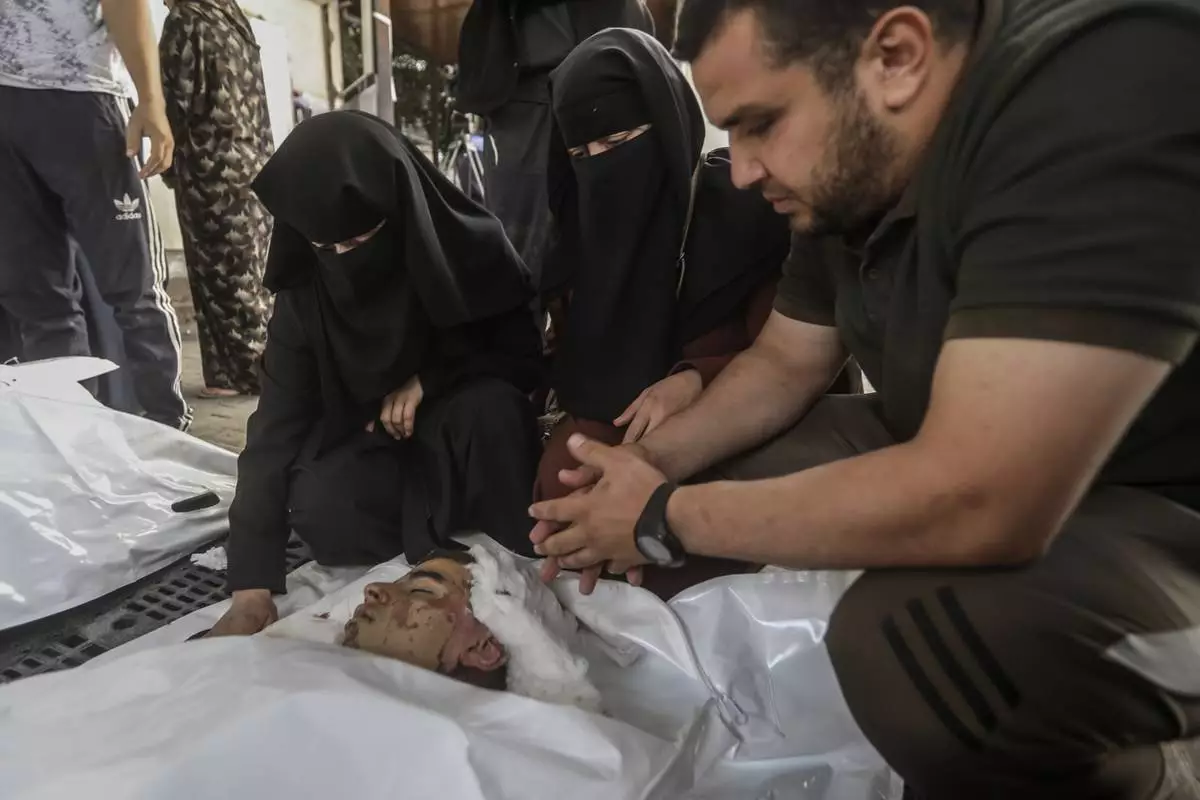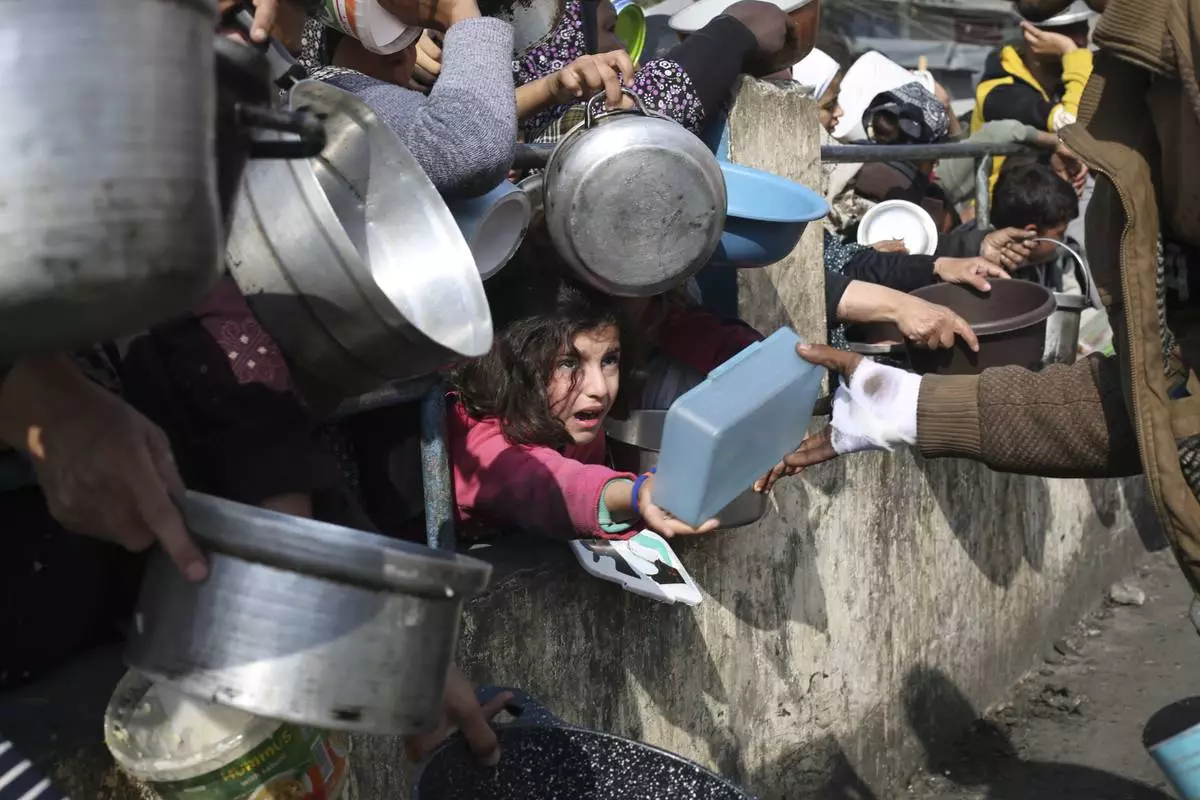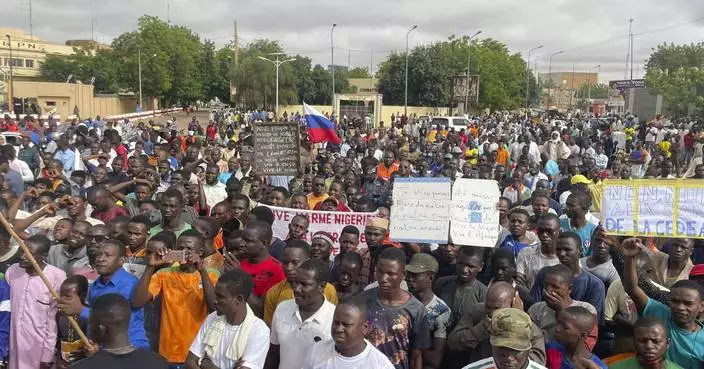The head of the Army Corps of Engineers has sent Congress a $778 million plan to fortify an Illinois waterway with noisemakers, electric cables and other devices in the hope that they will prevent Asian carp from reaching the Great Lakes, where the aggressive invaders could leave other fish with too little to eat.
Lt. Gen. Todd Semonite on Thursday approved the plan to install defenses at the Brandon Road Lock and Dam near Joliet, Illinois, about 40 miles from Lake Michigan. The site is a crucial choke point in an aquatic pathway between the lake and the carp-infested Illinois River.
The plan represents a compromise between proposals to erect barriers that would seal off Lake Michigan from the river and less drastic measures such as stepped-up commercial fishing.
Environmentalists and states including Michigan had argued for physical separation, while Illinois and Indiana contended that it would disrupt cargo shipping and that a Chicago-area electric barrier was keeping the carp at bay.
Although only a few live Asian carp have been found past the barrier, the fish's DNA has turned up there as recently as April, when water samples were taken from Chicago's Lake Calumet. The Corps says the leading edge of adult bighead and silver carp — the most feared of several Asian species because they gorge on plankton that other fish need — is about four miles from the Brandon Road complex.
"The Brandon Road project is the only shot we have to get additional protections in place to stop the carp," said Marc Smith of the National Wildlife Federation. "It will significantly reduce the risk."
The plan calls for installing a gantlet of technologies intended to repel approaching fish, including additional electric barriers and underwater speakers that would blast loud noises, plus an "air bubble curtain." A specially designed "flushing lock" would wash away carp that might be floating on the water as vessels pass through.
Semonite's endorsement came more than five years after the Army Corps offered a series of options for blocking the carp's advance.
It's now up to Congress to decide whether to authorize the project and provide most of the funding. A pending House bill recommends $3.8 million for preconstruction, engineering and design work in 2020. The expected completion date is March 2027.
"With the Asian Carp on the doorstep of our region's most vital natural resource, we have a small window of time to stop this invasive species before it inflicts irreparable damage on our Great Lakes and our $7 billion fishing industry and equally important tourism industry," said Rep. Marcy Kaptur, an Ohio Democrat who chairs the Appropriations Subcommittee on Energy and Water Development.
Republican Reps. Paul Mitchell and Bill Huizenga of Michigan also pledged support.
Bipartisan teamwork will be essential, particularly given the plan's escalating cost, said Molly Flanagan of the Alliance for the Great Lakes.
A draft released in 2017 estimated that the project would cost $275 million. The final version put the price tag at $778 million, and that would be under an "expedited" scenario in which the various technologies would be installed at the same time. It could reach $832 million under an alternative "phased" strategy, spokesman Allen Marshall said.
Another key will be getting financial support from Great Lakes states. The Army Corps generally requires non-federal partners to pay 35 percent of a project's construction costs, although Congress could waive some or all of the requirement.
Illinois Gov. J.B. Pritzker last month authorized his state's cooperation with initial phases of the program but said he wouldn't commit to long-term support without efforts to limit costs and contributions from other states.
Sens. Dick Durbin and Tammy Duckworth, both Illinois Democrats, said Friday that they would seek congressional approval "under a cost-share agreement that will ensure Illinois isn't left footing the bill for a project that will benefit the entire Great Lakes region."
Follow John Flesher on Twitter: http://twitter.com/johnflesher
WASHINGTON (AP) — Israel this week briefed Biden administration officials on a plan to evacuate Palestinian civilians ahead of a potential operation in the southern Gaza city of Rafah aimed at rooting out Hamas militants, according to U.S. officials familiar with the talks.
The officials, who were not authorized to comment publicly and requested anonymity to speak about the sensitive exchange, said that the plan detailed by the Israelis did not change the U.S. administration’s view that moving forward with an operation in Rafah would put too many innocent Palestinian civilians at risk.
Israeli Prime Minister Benjamin Netanyahu has vowed to carry out a military operation in Rafah despite warnings from President Joe Biden and other western officials that doing so would result in more civilian deaths and worsen an already dire humanitarian crisis.
The Biden administration has said there could be consequences for Israel should it move forward with the operation without a credible plan to safeguard civilians.
“Absent such a plan, we can’t support a major military operation going into Rafah because the damage it would do is beyond what’s acceptable,” U.S. Secretary of State Antony Blinken said late Friday at the Sedona Forum, an event in Arizona hosted by the McCain Institute.
Some 1.5 million Palestinians have sheltered in the southern Gaza city as the territory has been ravaged by the war that began on Oct. 7 after Hamas militants attacked Israel, killing 1,200 people and taking about 250 hostages.
The United Nations humanitarian aid agency on Friday said that hundreds of thousands of people would be “at imminent risk of death” if Israel moves forward with the Rafah assault. The border city is a critical entry point for humanitarian aid and is filled with displaced Palestinians, many in densely packed tent camps.
The officials added that the evacuation plan that the Israelis briefed was not finalized and both sides agreed to keep discussing the matter.
White House press secretary Karine Jean-Pierre told reporters on Friday that no “comprehensive” plan for a potential Rafah operation has been revealed by the Israelis to the White House. The operation, however, has been discussed during recent calls between Biden and Netanyahu as well as during recent virtual talks with top Israeli and U.S. national security officials.
“We want to make sure that those conversations continue because it is important to protect those Palestinian lives — those innocent lives,” Jean-Pierre said.
The revelation of Israel's continued push to carry out a Rafah operation came as CIA director William Burns arrived Friday in Egypt, where negotiators are trying to seal a cease-fire accord between Israel and Hamas.
Hamas is considering the latest proposal for a cease-fire and hostage release put forward by U.S., Egyptian and Qatari mediators, who are looking to avert the Rafah operation.
They have publicly pressed Hamas to accept the terms of the deal that would lead to an extended cease-fire and an exchange of Israeli hostages taken captive on Oct. 7 and Palestinian prisoners in Israeli jails.
Hamas has said it will send a delegation to Cairo in the coming days for further discussions on the offer, though it has not specified when.
Israel, and its allies, have sought to increase pressure on Hamas on the hostage negotiation. Signaling that Israel continues to move forward with its planning for a Rafah operation could be a tactic to nudge the militants to finalize the deal.
Netanyahu said earlier this week that Israeli forces would enter Rafah, which Israel says is Hamas’ last stronghold, regardless of whether a truce-for-hostages deal is struck. His comments appeared to be meant to appease his nationalist governing partners, and it was not clear whether they would have any bearing on any emerging deal with Hamas.
Blinken visited the region, including Israel, this week and called the latest proposal “extraordinarily generous” and said “the time to act is now.”
In Arizona on Friday, Blinken repeated remarks he made earlier this week that "the only thing standing between the people of Gaza and a cease-fire is Hamas.”

The Chahine family prepares to bury two adults and five boys and girls under the age of 16 after an overnight Israeli strike in Rafah, southern Gaza Strip, Friday, May 3, 2024. An Israeli strike on the city of Rafah on the southern edge of the Gaza Strip killed several people, including children, hospital officials said Friday. (AP Photo/Ismael Abu Dayyah)

FILE - Palestinians line up for free food during the ongoing Israeli air and ground offensive on the Gaza Strip in Rafah, Jan. 9, 2024. A top U.N. official said Friday, May 3, 2024, that hard-hit northern Gaza was now in “full-blown famine" after more than six months of war between Israel and Hamas and severe Israeli restrictions on food deliveries to the Palestinian territory. (AP Photo/Hatem Ali, File)

Palestinians rescue a woman survived after the Israeli bombardment on a residential building of Abu Alenan family in Rafah, southern Gaza Strip, early Saturday, May 4, 2024. (AP Photo/Ismael Abu Dayyah)

President Joe Biden walks across the South Lawn of the White House as he talks with White House press secretary Karine Jean-Pierre Thursday, May 2, 2024, in Washington, after returning from a trip to North Carolina. (AP Photo/Mark Schiefelbein)













